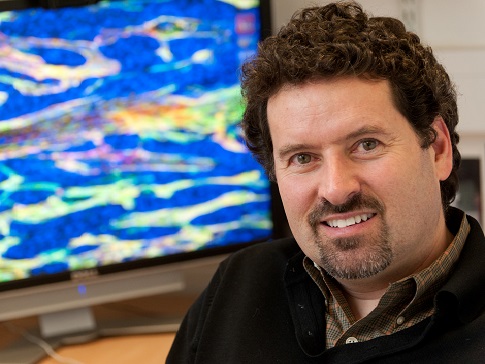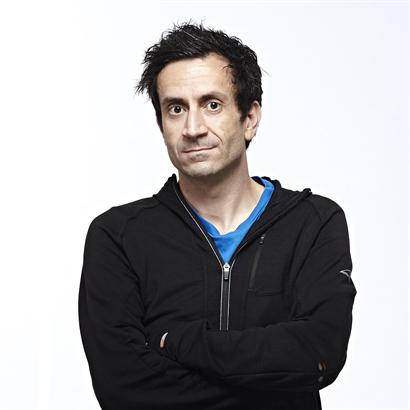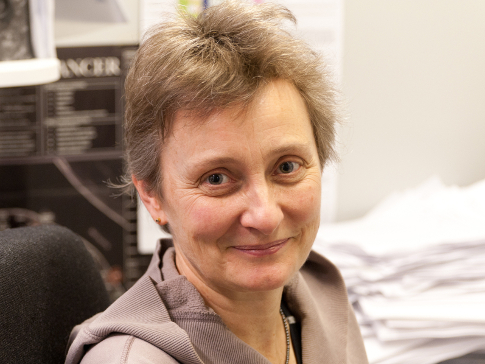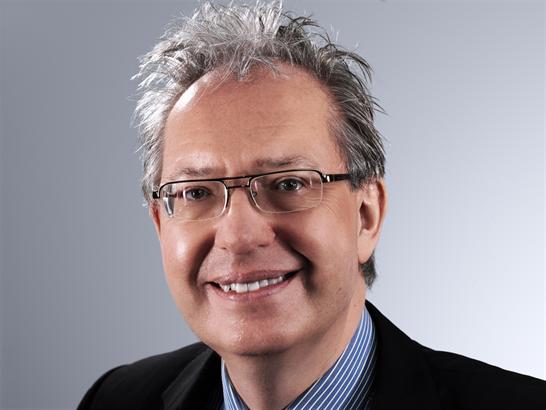The Institute of Cancer Research co-ordinated a letter which ran in the Daily Telegraph last week, bringing together more than 10 charities in support of our call to change the current EU rules that govern childhood cancer research.
EU rules
The letter followed a hard-hitting recent Mail on Sunday article quoting Dr Louis Chesler, a team leader at the ICR who also treats patients at The Royal Marsden, in support of closing the EU regulatory loophole – which currently allows companies to avoid testing promising new drugs in children.
It’s not the only time our childhood cancer research has featured in the media recently – with Dr Chesler also featuring in February’s ‘Can You Cure My Cancer?’ – an hour-long BBC One Panorama documentary filmed exclusively at the ICR and Royal Marsden.
Last month also saw the relaunch of two fundraising appeals that focus on our work to find new treatments for childhood cancer – telling the stories of Jack and Abbie, young children who died of childhood cancers.
So now seems a good time to review the past year of childhood cancer research at the ICR.
A year in childhood cancer research
Several research teams at the ICR are focused on finding new treatments for children with cancer. In the past 12 months, there have been several major research projects involving our scientists that have significantly advanced our knowledge of different childhood cancers.
Medulloblastoma

A study led by Dr Chesler, alongside researchers in Newcastle, found a set of genetic mutations linked to particularly aggressive forms of medulloblastoma. Ultimately, the study could help lead to personalising treatments for children based on the genetic profile of their tumours – a concept that has already become a reality for many adult patients on clinical trials at the ICR and The Royal Marsden, as explored in detail in ‘Can You Cure My Cancer?’.
Brain cancer

Dr Chris Jones leads another ICR team with a particular focus on rare brain tumours called gliomas, including a type called diffuse intrinsic pontine glioma, or DIPG. This cancer type is currently incurable – a diagnosis of DIPG for a child means they will live for an average of 9–12 months.
Dr Jones’s team published a major study in the journal Nature Genetics, funded by Cancer Research UK, which linked together DIPG with an extremely rare developmental disorder called fibrodysplasia ossificans progressiva, or FOP, known colloquially as Stone Man Syndrome.
The study showed that mutations to a gene called ACVR1, already linked with FOP, are found in around a quarter of DIPG cases. The finding was unexpected and surprising, and could ultimately help lead to new treatments for children with DIPG.
Rhabdomyosarcoma

A third study made an important step towards future treatments for another rare cancer in children, called rhabdomyosarcoma. This study – a collaboration between ICR researchers led by Professor Janet Shipley and colleagues in Harvard and Aberdeen – revealed for the first time the key role a protein called Yap plays in triggering rhabdomyosarcoma, and could lead to the development of improved therapies to treat the disease in the future.
Neuroblastoma

Neuroblastoma is a major focus for research led by both Dr Chesler and Professor Andy Pearson at the ICR and The Royal Marsden. In particular, several projects focus on cancer genes linked with recurrent disease – including one called ALK.
Mutations to the ALK gene are commonly found in treatment-resistant neuroblastoma, as well as other cancers – and although Sophie had a different type of tumour, genetic sequencing revealed that Sophie might benefit from an ALK-targeting drug.
There is plenty of other childhood cancer research going on at the ICR too. Professor Pearson leads a clinical trial of a drug called bevacizumab in children with relapsed neuroblastoma. And last year Dr Chesler wrote a review in the prestigious Nature Reviews Cancer which, tantalisingly, tells how some babies actually cure themselves of the cancer.
Support our work
Finding new treatments for childhood cancers is an inspiration for researchers at the ICR and – as shown in ‘Can You Cure My Cancer?’ – we are making progress towards new treatments. Children’s cancers are also a focus in our policy work – you can read our full position statement on childhood cancer trials here.
Please support either of our childhood cancer-focussed appeals by clicking on these links to Abbie’s Appeal and Jack’s Appeal.
comments powered by